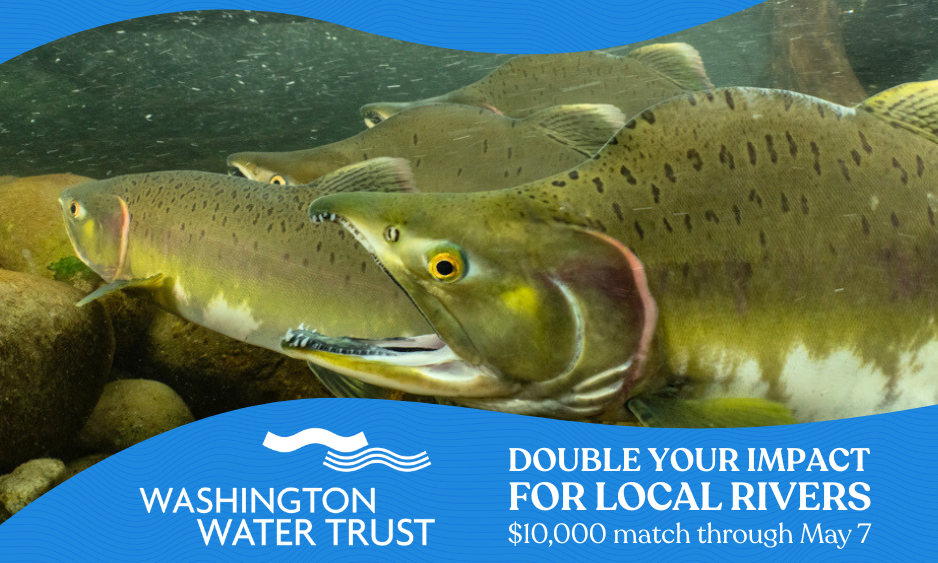
Ethan, welcome to the Washington Water Trust! First of all, tell us about your favorite river.
This a tough one, but after a backpacking trip in the Glacier Peak Wilderness last year the Napeequa River has to be high on that list. It’s not for nothing that the Napeequa River valley has been described as the Shangri-La of the Cascades.
What will you be doing for the Washington Water Trust?
I will be working across Central and Eastern Washington with a focus in the Walla Walla Basin to develop, support, and manage water transactions that help improve instream flow during fish critical low flow periods. I will be working in close coordination with the Confederated Tribes of the Umatilla Indian Reservation (CTUIR) alongside other collaborative watershed efforts to prioritize projects and identify those with the greatest ecological benefit.
What were you doing prior to joining Washington Water Trust?
After receiving my master’s in Community and Regional Planning in 2017, I spent a year as a Forest Service Resource Assistant working on the Gifford Pinchot National Forest out of Trout Lake, WA. During this time, I supported two forest collaborative groups – diverse stakeholder groups including citizens, recreation groups, environmental organizations, business and economic interests, and local elected officials that work with the Forest Service to advance the pace and scale of forest restoration. At the end of that year, I moved to Ellensburg, WA where I took a shared position between the Cle Elum Ranger District on the Okanogan-Wenatchee National Forest and the Mountains to Sound Greenway Trust. I spent the year working to form a new recreational collaborative, the East Cascades Recreation Partnership, seeking innovative solutions to addressing the growth of recreational uses of public lands in Kittitas County that is rapidly outpacing the capacity of our public land management agencies.
What first got you interested in working to protect Washington’s freshwater resources?
I’ve long sought a meaningful career where I could be a steward of Washington’s amazing natural resources. I’ve spent the previous years concentrating on the headwaters and upland forest management in our state’s extensive public lands, and I’m excited to turn my attention more directly to the tributaries, rivers, aquifers, and aquatic resources that connect us across communities, economies, landscapes, and values. Freshwater resources face a complex and increasing complex set of challenges as our state’s economy, populations, and climate continue to shift making this work critical to the long-term health of the ecosystems that we all benefit from.
Where did you grow up?
I grew up in Laramie, WY where a strong land ethic and concern for social justice was instilled in me during alpine hikes and drives through the high prairie by my father, an entomologist and creative writer, and my mother, a social worker. Growing up in Wyoming also gave me a deep appreciation for the complexities and challenges of rural economies, politics, natural resource management, and recreation, and it inspired me to pursue a career in natural resource management.

OK, now the important stuff – what do you like to do when you’re not working?
When not working I can be found drinking lots of black coffee and trail running, backcountry skiing, climbing, and biking across the amazing public lands of Washington for as long as the caffeine lasts.
Which animal would you consider your fursona? I’ve always felt a certain kinship with the lowly house cat. I think it has something to do with my napping habits and love of warm sunny spots in our house.
And last but certainly not least – you have to sing karaoke, which song do you pick?
My ability to carry a tune has been sharply judged by many a friend of the years, but I’ve yet to let it stop me from belting out Wagon Wheel.
